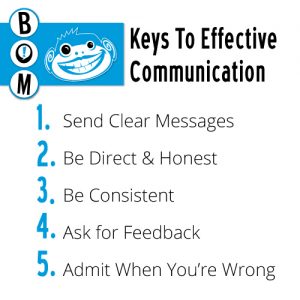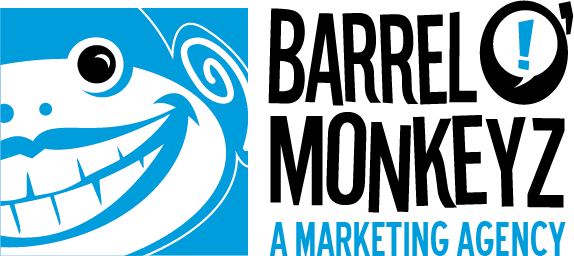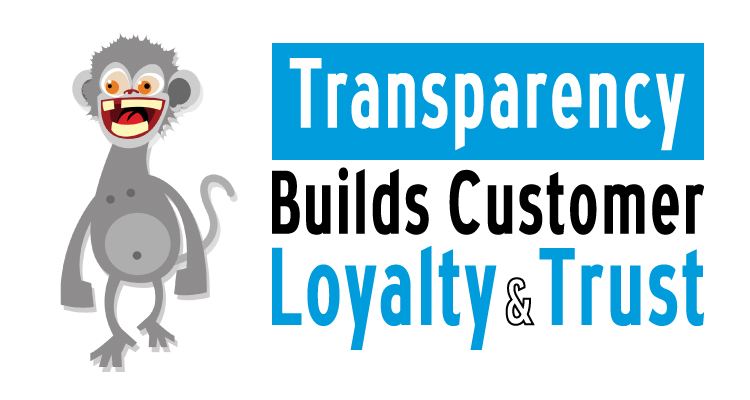Facebook and Mark Zuckerberg have been in the news recently—A LOT. Of course, the tech giant has been in the news for years, and usually around the unprecedented growth of Facebook and its reach around the globe and into our daily lives. For the most part, it’s been positive news.
These past few weeks, however, it’s been for other reasons—namely the use of the personal data of Facebook users for non-Facebook purposes and associated privacy concerns. It seems that Facebook hasn’t been as transparent as it should have been with users and what’s done with their personal data, or users haven’t fully understood the nature of their “user agreement” with the tech giant (or simply didn’t care).
Regardless of who said what and when, and the ethics of privacy and privacy expectations in the digital age, this blog is not about Mark Zuckerberg or Facebook. It’s about companies being transparent with their customers about how they operate, and then being willing (or not willing) to listen to those customers and deliver the products or services said customers say they want, need or expect, in a manner they find beneficial. At the same time, it’s about companies that are NOT prone to transparency and listening, and they’re having to face the consequences of that decision.
Never Too Big to Fail
It’s my opinion that no one is too big to fail . . . EVER. The Roman Empire failed. The British Empire flourished and then shrank. And just ask Kodak, Chrysler, or the Lehman Brothers about being too big to fail. These iconic companies enjoyed success for years, but they either failed to listen to changing market forces, their customers, investors, operated arrogantly (or all of the above), and eventually flopped.
Or Too Small
Similarly, even the smallest of companies, all the way down to solopreneurs and freelancers, need to be concerned with the same things as their larger brethren, which is delivering on their brand promise and being transparent to their customers, whether those customers number in the single numbers, the thousands, or the millions.
No Surprises
At Barrel O’Monkeyz, we like to be upfront with clients and prospective clients about our work, how we work best with clients, and how we price our services. We don’t like surprises and neither do our clients, especially around deliverables, timeframes, and pricing.
- When your customer expects “A” and you deliver “Z” who’s at fault?
- When a big tech company say it will do “X” with your personal data and then it does “Y” with it, how are you supposed to react?
- When your Credit Card company’s security protocols are breached and your personal information is stolen by someone halfway around the world and you’re not notified until months later, what are you supposed to think?
Clearly you shouldn’t be happy, and I’ll go so far as to say that your confidence in the company should be shaken. What else is currently going on that you should know about? Are there more surprises awaiting you?
Transparency is the Key
Companies that are transparent and communicate well with their customers engender brand loyalty. According to a study cited in a June 2017 article at Entrepreneur.com, “up to 94 percent of consumers surveyed indicated that they were more likely to be loyal to a brand that offers transparency, while 73 percent said they were willing to pay more for a product that offers complete transparency.”
In the article, Top 3 Ways Corporate Transparency Builds Customer Loyalty, author Derek Carder, Director of Customer Experience at GEOtab.com (a global provider of telematics solutions to large companies), writes that “It’s no longer enough to think of customer loyalty in terms of reward programs and reactivation campaigns. Building a strong, open corporate culture can also play a role in engaging and attracting customers.”
Trust at an All-Time Low
According to a 2017 Pew research report, “Only 18% of Americans today say they can trust the government in Washington to do what is right ‘just about always’ (3%) or ‘most of the time’ (15%).” These are historic lows. Similarly, Navexglobal.com, writes that “Corporate America has a trust problem, a big one,” citing the Edelman Trust Barometer, an annual survey that measures people’s trust in various types of organizations. Their article stated that “trust in business fell from 53 percent one year ago to 52 percent today. So overall, businesses still qualify as trustworthy—but barely.”
With all this distrust around, what’s a company (or an individual) to do?
Communicate, Communicate, Communicate
Times may change, but the keys to effective communication do not. It’s quite simple really:
- Send clear messages. Use concise, precise language when speaking or writing that leaves little room for interpretation by your audience.
- Be direct and honest. Say what you mean and mean what you say.
- Be consistent. Nothing creates confusion and distrust more than inconsistency.
- Ask for feedback. Listen to that feedback to ensure what you said (or wrote) was interpreted the way you intended. If something’s been misinterpreted deliver your message in a different way so that listeners can understand it.
- Admit when you’re wrong. It’s OK to say “I don’t know” or “I messed up.” Hopefully those times are few and far between, but when they do occur, being honest about it with customers one-to-one or en masse builds loyalty and trust.
Of course, I’m not suggesting that a company divulge its proprietary information or trade secrets. But companies that are above board and transparent about what they do and how they do it will have a leg up on their competition.
- How can you be more transparent in your dealings with customers?
- How can you use social media and customer forums to send clear messages and then listen to what your customers are telling you?
- How can you communicate more effectively with your marketing, content, and through your blog or website?
If you’re not sure, let Barrel O’ Monkeyz provide a free assessment of your current Website and/or Inbound Marketing Strategy. We’ll help you answer the question, “Am I set-up for success?”
In the meantime, check out Barrel O’Monkeyz white papers on a range of topics, from inbound marketing and website development, to digital marketing and design. They’re full of ideas and steps you need to take to turn your ideas into reality.

